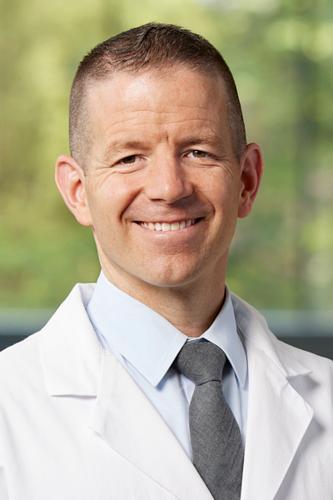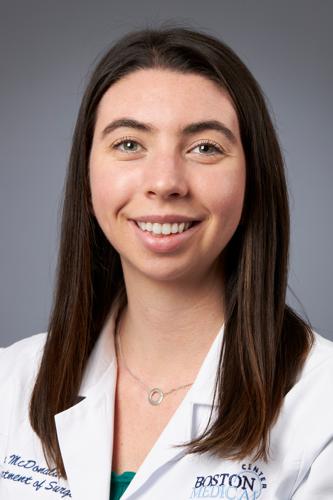Surgery is a potential treatment for many patients diagnosed with a tumor or tumors within the liver. These include primary tumors, which originate in the liver, and secondary tumors that develop in other parts of the body and metastasize (spread) to the liver. The liver filters and processes blood from the entire gastrointestinal tract, and most liver metastases are from these organs, especially the colon or rectum. Several types of surgical operations and interventions are available to treat liver cancer. Our experienced team of surgeons works with patients and a highly specialized group of other clinicians and staff, including gastroenterologists, interventional radiologists, medical oncologists, and nutritionists to determine the best treatment for each patient.
Liver Transplant
In select cases, a liver transplant may be the best option to treat liver cancer. Strict criteria are used to identify whether a patient is a candidate for a liver transplant. Patients are screened to see whether they are eligible. However, the number of organs available for transplant each year is small. In many cases, patients receive a liver from a recently deceased donor, but some patients are eligible to receive part of a liver from a living donor, which is often a close relative or friend.
If a transplant is appropriate, other procedures are still frequently recommended to keep the cancer from growing while awaiting an organ. These may include any of those listed below.
Resection
For patients awaiting transplant, or for those who do not meet the criteria for transplant, surgical removal (resection) of part of the liver offers the best chance of cure. A number of factors, including size and location of the tumor and overall health of the patient, determine whether a patient is eligible for this surgery, known as a partial hepatectomy or lobectomy. These operations may be performed via minimally invasive techniques (using small incisions and cameras or a surgical robot) or with an open operation, depending on the characteristics of a patient’s tumor.
Ablation
Another option for patients with smaller tumors who may not want or be good candidates for resection is ablation. Ablation destroys liver tumors by using thermal (heat) energy directed into the tumor itself via a small probe (needle). This may be done percutaneously (through the skin) or via an operation.
The most common method of ablation is called microwave ablation, whereby electromagnetic waves are used to heat and kill the cancer cells. Using ultrasound or CT guidance, a specialized needle-like antenna (probe) is placed in the tumor. The probe transmits electromagnetic waves that heat and kill the cancer cells.
Clinical Trials
When appropriate, Boston Medical Center offers cutting-edge trials for liver cancer. If a patient is eligible to participate in a clinical trial, spending time to help them understand what this might entail and answering all questions is a high priority so that our patients can make an informed decision about what is right for them.
Liver Cancer Surgeons
Teviah E. Sachs, MD, MPH

David B. McAneny, MD

Physician Assistants
Kelsey J. Burke, PA-C

Kayla Hakim, PA-C

